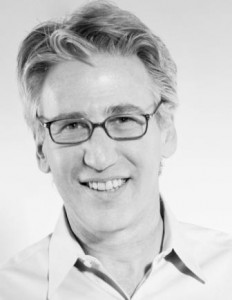Nearly every working-class American is one or two paychecks from being out on the streets. And the shuttering of bars, restaurants, and entertainment venues in Los Angeles and New York City — all necessary, but all committed with cruel and thoughtless consideration for the American worker — is going to take a significant and life-altering hit on the vast majority of Americans who aren’t cushioned by savings or a 401k plan that they can cash out to survive during this unprecedented time. According to data, 69% of Americans have less than $1,000 in savings. And 45% of those Americans have no savings at all. It is unconscionable and morally unacceptable to leave these Americans without a financial safeguard. Yes, evictions are frozen in New York City. But there isn’t a rent freeze. And when the housing courts reopen, the restaurant workers — who are undoubtedly struggling to find last-minute funds to make rent in the next two weeks — will be left vulnerable to greedy landlords who have been looking for an opportunity to evict their tenants, do a retrofit, raise the rent, and make more money.
Moreover, with businesses circling the wagons right now just to survive, anyone unemployed right now is also left in the lurch. The emergency Coronavirus bill now being worked out by Congress allows for sick leave, but leaves about 59 million Americans uncovered. If you work for a business with more than 500 employees — say a restaurant franchise like McDonald’s — or the government, you’re not going to qualify for paid leave. Some companies, such as Target and Walmart, have stated that they would allow for two weeks of sick leave should any employee contract COVID-19. But this still doesn’t account for the likelihood that, as quarantine measures continue and more venues and establishments close down, the employees who work for these places will not have an alternative income.
The only mechanism that would alleviate this unfair burden upon the unemployed, the working poor, and the middle class would be a guaranteed income granted to all Americans during the next two months. This must be accompanied by a rent freeze, a freeze on credit card interest and late fees, and numerous other pieces of financial legislation to rectify a situation that we could not foresee happening.
This isn’t about radicalism. It’s about democratic humanism. It’s about an empathy for all that should never be a partisan issue.
Because this isn’t just about workers meeting their basic needs. For the estimated 30 million Americans who are presently uninsured — and for the working class population using a healthplan with a high deductible — are going to face significant costs just to get checked out for the Coronavirus — such as the teacher hit with a $10,000 emergency room bill who got checked out after she returned from Italy. (The irony is that the teacher merely visited the ER and didn’t get tested.)
It’s one thing for Governor Andrew Cuomo to end the seven day waiting period on unemployment. But these benefits must be issued at an amount that is realistic to survive on. Is it fair for the bartenders and waiters now out of work to have to use their two weeks of paid sick leave to survive what may be two months of quarantine? It is not. It is, in fact, deeply inhumane.
Unless our legislators relish the destruction of working-class lives — and there is good reason to believe that Republicans and Democrats alike simply do not care — we must issue a guaranteed income at the federal level during the next two months that kicks in immediately. Creating such a financial cushion for everyone will alleviate stress and encourage people to self-quarantine. For how many of these workers are now looking for alternative income streams that are likely unsafe for them and unsafe for the population?

